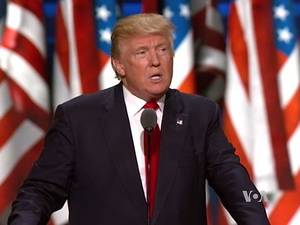You know what it looks like… but what is it called?
TAKE THE QUIZTrending: ‘l'état, c'est moi’
Lookups spiked 2,100% on January 30, 2020
During his presentation of President Trump's impeachment defense, counsel Alan Dershowitz sparked debate and a large number of dictionary searches when he declared:
If a president does something which he believes will help him get elected in the public interest, that cannot be the kind of quid pro quo that results in impeachment.
This assertion was widely criticized and interpreted as Dershowitz arguing that if what is good for the president is good for the country, then the president is above the law. Many comments on this argument quoted Richard Nixon's statement that "when the president does it, that means that it is not illegal," and others equated it as amounting to simply: "L’état, c’est moi."
On Twitter, Harvard Law professor Laurence Tribe, a longtime critic of both Trump and Dershowitz, compared the argument to French King Louis XIV's declaration, "L'état, c'est moi," meaning, "I am the state."
— William Cummings, USA Today, 30 Jan. 2020
L’état, c’est moi means “I myself am the nation.” The French words literally mean “the state, it’s me” and are usually rendered “the state, it is I” in English.
The idea that the nation is embodied in the person of the king is usually attributed to Louis XIV, the “Sun King” who believed in dictatorship by divine right and whose love of luxury has become a symbol of royal opulence. The attribution is almost certainly apocryphal, since there is no proof that he actually said it, but, like the similarly apocryphal “let them eat cake” that is often attributed to Marie Antoinette, the quotation conforms with a popular image or idea and has stuck.
The French word état is actually the ancestor of the English word state. In the Middle Ages, the French word was spelled estat, and subsequent spelling reforms in French changed many initial /s/ sounds spelled es- to the acute accent, rising to the right about the letter /e/ and dropping the s entirely.
https://twitter.com/waltshaub/status/1222602631312441344
Trend Watch is a data-driven report on words people are looking up at much higher search rates than normal. While most trends can be traced back to the news or popular culture, our focus is on the lookup data rather than the events themselves.








